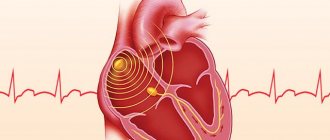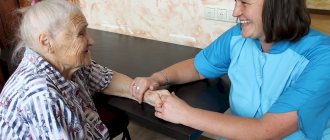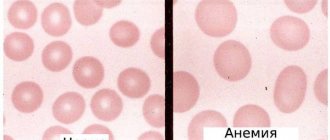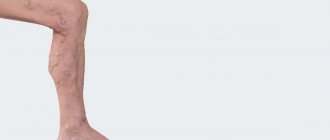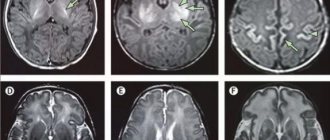Sudden dizziness, loss of balance - probably every adult has experienced these sensations. In most cases, no one attaches importance to these phenomena, although they may signal the onset of the development of a neurological or other disease. If you experience systematic dizziness and loss of balance, you should consult a neurologist to clarify the situation.
In Moscow, patients with dizziness are examined at the Yusupov Hospital. The clinic is a modern medical center, where the following areas are represented: neurology, rehabilitation, oncology, a scientific and practical center, a surgical department, and an addiction treatment clinic. The Yusupov Hospital provides examination, treatment and rehabilitation of various neurological pathologies, including dizziness and loss of balance. Highly qualified neurologists who have extensive experience in the treatment and diagnosis of diseases of any complexity work with the patient.
Loss of balance
Balance imbalance is a short-term or permanent inability to control the position of the body in space. Loss of balance is characterized by an unsteady gait, swaying, lack of coordination, and unexpected falls. A sharp loss of balance is most often associated with the development of some disease (neurological, cardiological and others), and is also observed in older people. In old age, loss of balance when walking, the causes of which are not related to the course of the disease, can be explained by the general aging of the body.
Impaired balance quite often coincides with dizziness, nausea, vomiting, and general weakness. In most cases, these disorders occur due to changes in the vestibular apparatus, traumatic or other brain damage, intoxication, and diseases of the inner ear.
Causes of development of impaired coordination of movements
It is important to understand that coordination disorder can manifest itself not only in neurological pathologies and as a side symptom accompanies various diseases. There are many reasons for it:
- cerebrovascular insufficiency, focal cerebral infarctions or strokes;
- brain or spinal cord injuries;
- brain tumors;
- demyelinating diseases (eg, multiple sclerosis);
- congenital malformations of the brain or its vascular system;
- hydrocephalus (both congenital and acquired);
- neuroinfections;
- endocrine disorders;
- various poisonings;
- alcoholism;
- deficiency of vitamin B12 in the body.
Causes
There are the following main diseases affecting the central nervous system, which are accompanied by loss of balance:
- Parkinson's disease. With the development of parkinsonism, characteristic changes in a person’s gait and posture occur. Patients have a curved posture: the spine bends forward in the thoracic region, the head tilts down, the elbows and knees are slightly bent. It is difficult for the patient to start and finish movements. He slowly begins to walk, his feet barely leave the surface, his steps are very small (“shuffling” gait). Once you gain speed while walking, it is quite difficult to stop. An imbalance occurs and a person may fall. It is difficult for the patient to accelerate or quickly change the direction of the body - this also leads to imbalance;
- cerebellar damage. Balance imbalance occurs when the cerebellum and its connections are damaged. Patients are characterized by a posture with legs widely spaced, which is caused by difficulties when walking along a narrow line. An attempt to put the legs together is accompanied by swaying, large movements of the body back and forth. As a result, most often, a fall occurs. The patient walks very carefully, swaying in different directions, uses various objects (furniture, walls, etc.) for support;
- cerebral paralysis. The pathology causes many different movement disorders, which are accompanied by gait disturbances and loss of balance. Patients often experience rapid or moderate serpentine movements of the arms and legs, changes in posture with sudden strong flexion and extension of the limbs and torso. When walking, involuntary movements of the limbs, rotational movements of the neck and grimaces on the face occur. Patients with cerebral palsy are characterized by asymmetrical positions of the limbs when turning the torso. If you change posture carelessly and quickly, a person may lose balance and fall.
What does the gait of an elderly person tell you?
Peripheral neuropathy:
- too long, uneven steps;
- poorly controlled movements, legs “do not obey” when walking;
- noticeable sagging of the foot when walking;
- when walking, a person constantly looks at his feet;
- in poor lighting, gait becomes unstable.
Frontal lobe disease:
- a person walks bent over;
- has difficulty starting to move;
- moving forward, he often stops;
- the steps are short and shuffling.
Parkinson's disease:
- mincing gait;
- legs are bent and arms are bent;
- short shuffling steps;
- arm span is smaller than usual;
- When moving, the center of gravity is shifted forward.
Cerebellar diseases:
- uneven stride length;
- legs are wide apart when walking;
- a person loses balance when changing position.
Losing your balance in the dark
There may be cases of loss of balance in the dark. The disorder may occur due to chronic vestibular dysfunction. Increased symptoms in the dark are due to the fact that in such a situation vision cannot compensate for the defect. As a result, simply going to fetch water at night will cause significant difficulty and often end in a fall. Loss of balance in the dark is caused by drug intoxication, damage to the cerebellum, and disorders in the cervical spine. If the cerebellum is damaged, visual control is not important and the person will constantly experience a feeling of loss of balance.
Unsystematic sudden dizziness
About 30% of complaints about dizziness and loss of balance are called false, that is, non-systemic. The sensations are not associated with the development of the disease and can occur in the following situations:
- a sharp change in body position when standing up after prolonged sitting or lying, a sharp turn of the head. The feeling of loss of balance lasts seconds and is associated with the redistribution of blood in the vessels;
- the appearance of feelings of fear or anxiety. Dizziness is caused by a psychological factor;
- overwork, lack of sleep;
- lack of nutrients during an irrational diet;
- dizziness during pregnancy may be associated with the development of anemia, fatigue, changes in the body during pregnancy;
- intoxication with medicinal, alcoholic and narcotic substances causes a feeling of loss of balance and dizziness due to the toxic effect on the vestibular apparatus.
Walking on a tightrope: what to do if you feel dizzy when walking?
Dizziness
“Wobbles”, “drives”, “skids” - this is how people describe this unpleasant condition. Dizziness when walking, like any dizziness, is just a symptom. It signals problems in the body, ranging from relatively harmless and easily treatable to life-threatening and requiring immediate medical intervention [1].
Dizziness when walking - causes
These are diseases:
- vestibular analyzer;
- central and peripheral nervous system;
- cardiovascular;
- caused by head and spinal injuries;
- emotional and mental disorders.
Let's look at the most typical and common causes.
Disorders of the vestibular apparatus
With vestibular (systemic or true) vertigo, which is called vertigo, a person feels as if the world around him is spinning around him or he himself is spinning in relation to the world. Typically accompanied by tinnitus, nausea, even vomiting, hearing loss, and sweating [4].
Vertigo is typical for diseases of the inner ear, where the peripheral part of the vestibular apparatus is located [3,4].
These are disorders such as:
- benign paroxysmal positional vertigo (BPPV);
- Meniere's disease;
- vestibular neuritis (inflammation of the vestibular nerve).
It is impossible to walk during attacks of vertigo without assistance - you feel dizzy even in a lying position. But with BPPV and Meniere's disease, even after the disease subsides, instability when walking remains for a long time. In elderly patients with chronic BPPV, balance impairment may subsequently become the only symptom and lead to falls [3].
Disorders of the peripheral vestibular analyzer, as a rule, respond well to treatment with drugs and special exercises [3,4].
Unsteadiness when walking, dizziness with a feeling of rotation, which are accompanied by neurological disorders, may indicate dysfunction of the central part of the vestibular apparatus, which is located in the brain stem and cerebellum [3].
For example, with vertebrobasilar insufficiency (VBS), a disorder of the blood circulation of these parts of the brain, in addition to loss of balance and dizziness, the following may be observed: shortening and unevenness of the step, uncoordinated movements, decreased sensitivity of the face and limbs, double vision, difficulty swallowing [7]. These are serious disorders that require urgent medical attention.
Dysfunctions of the central and peripheral nervous system
Dizziness and instability when walking, as well as loss of balance without vertigo, develop when certain parts of the central (brain and spinal cord) nervous system are disrupted.
These could be [4]:
- normal pressure hydrocephalus;
- parkinsonism;
- myelopathy (damage to nerve tissue in the spinal cord);
- disorders of the visual analyzer;
- cerebellar pathologies, congenital or acquired (for example, due to alcoholism);
- brain injuries;
- complications after infections of the central nervous system (meningitis, encephalitis);
- demyelinating diseases of the central nervous system, such as multiple sclerosis.
- brain neoplasms.
Unsteadiness without dizziness can also be caused by conduction failures in the peripheral nervous system - nerve fibers located outside the central nervous system [4].
These are sensory polyneuropathies, which in turn are caused by a large number of diseases - for example, diabetes, connective tissue diseases, and renal failure [8].
Cardiovascular diseases
Weakness and dizziness when walking can occur with the following diseases [6]:
- vegetative-vascular dystonia;
- atherosclerosis of cerebral vessels;
- attacks of coronary heart disease and arrhythmia;
- ischemia (lack of nutrition) of the brain;
- hypotension (low blood pressure);
- hypertension (high blood pressure).
In these cases, complaints of lightheadedness, lightheadedness, fog in the head, and decreased clarity of vision are typical. In these cases, a person can talk about himself - “like a drunk” [6].
Shortness of breath and dizziness when walking are signs of heart failure. If these symptoms do not go away at rest for more than 20–30 minutes and are accompanied by chest pain, sweating and lightheadedness, this may indicate a pre-infarction condition or a heart attack. This condition requires immediate medical attention!
Impaired balance, changes in gait, weakness in the legs or one of them, tilt to one side (a person periodically “skids”), dizziness, tingling in the limbs, decreased sensitivity of parts of the body indicate a lack of blood supply to the brain and the threat of a stroke. In this case, urgent medical attention is also required.
Psychogenic dizziness
The second most common cause of dizziness is psychogenic, that is, of a mental nature. This type of disorder is called postural phobic [4].
In this case, patients describe a fog in the head or a veil before the eyes, the sense of perception of reality may be disrupted, and a feeling of loss of stability arises. A person begins to be afraid to walk, because he is sure that he will fall. In this case, an objective examination reveals normal vestibular function [5].
Sweating, palpitations, shortness of breath, and a feeling of fear may occur. The patient may feel as if he is dying or is having a stroke.
Psychogenic dizziness is usually associated with other phobic and anxiety disorders, obsessive states, depression, and panic attacks [5].
Diagnosis and treatment
It is necessary to treat not the consequence - dizziness - but the disease that causes the symptoms. If you experience nausea, dizziness or weakness, consult your physician. He will study the problem and refer you to a specialist - a cardiologist, endocrinologist or neurologist. The doctor will determine the cause and prescribe treatment for the cause of the unpleasant symptoms. You can be examined and receive appointments at the clinic closest to you.
Your doctor may prescribe a drug containing betahistine, which can relieve symptoms of dizziness and nausea. Preparations with betahistine help reduce the frequency and intensity of dizziness and are used for the symptomatic treatment of vestibular dizziness (vertigo).
In addition, betahistine is indicated for Meniere's syndrome, which is also characterized by dizziness, which is often accompanied by nausea/vomiting, tinnitus, and hearing loss (hearing loss). The drug effectively relieves unpleasant symptoms. It is useful to undergo sessions of acupuncture, massage, manual therapy, and physical therapy.
Bibliography:
1. Bornstein A., Lempert T. Dizziness: a practical approach to diagnosis and treatment. M.: GEOTAR, 2010.
2. Parfenov V.A., Zamergrad M.V., Melnikov O.A. Dizziness: diagnosis and treatment, common diagnostic errors. M.: MIA, 2009.
3. V.A. Parfenov, N.V. Bestuzheva. Causes of vestibular vertigo. Journal of Clinical Gerontology. 1–2, 2013.
4. Flomin Yu.V., Gavryliv I.R., Voinilovich L.V. Dizziness: definition of subtype International Neurological Journal 2012, 5.
5. O.V. Zaitseva, O. E. Wenger, A. F. Khirnetkina, K. V. Overchenko. Psychogenic dizziness in general medical practice. // Medical scientific and practical portal “Treating Doctor”. https://www.lvrach.ru/2017/02/15436675, accessed 07.23.2020.
6. When the blood vessels make your head spin. N.S. Alekseeva Doctor of Medical Sciences, Scientific Center of Neurology, Russian Academy of Medical Sciences. Magazine "Nerves", 2007, 2.
7. Isaikin A.I., Yakhno N.N. Vertebro-basilar insufficiency. MMA named after I.M. Sechenov. "RMZh" Russian medical journal No. 25.
8. T.G. Sakovets, V. I. Bogdanov. SENSORY NEUROPATHIES: ETIOLOGY, PATHOGENESIS, CLASSIFICATION, CLINICAL MANIFESTATIONS, DIAGNOSIS. Journal of Practical Medicine, December 2012, Volume 1.
Co-author, editor and medical expert:
Volobueva Irina Vladimirovna
Born 09/17/1992.
Education:
2015 - Sumy State University, specializing in General Medicine.
2017 — Completed an internship in the specialty “Family Medicine” and also defended her master’s thesis on the topic “Peculiarities of the development of antibiotic-associated diarrhea in children of different age groups.”
Where to go and which doctor
If you experience constant dizziness and a feeling of loss of balance, you should seek help from a neurologist. The doctor will determine the reasons for the development of this condition and prescribe the necessary treatment. If during the diagnostic process it turns out that the cause of dizziness and loss of balance is not a neurological disease, the doctor will refer the patient to the appropriate specialist (cardiologist, otolaryngologist, etc.) to eliminate the problem.
The Yusupov Hospital is equipped with the latest technology. The latest equipment from global manufacturers is used here. This allows you to diagnose any disease quickly and in the shortest possible time. Timely diagnosis greatly facilitates the treatment process and eliminates possible complications and unpleasant consequences.
The Yusupov Hospital is located near the center of Moscow and receives patients around the clock. You can make an appointment and get advice from specialists by phone.
Treatment
Conservative therapy
Treatment tactics are determined taking into account the underlying disease. In case of infectious-inflammatory genesis of ataxic gait, antibiotic therapy or antiviral therapy is indicated. For patients with vascular diseases, depending on the nature of the pathology, anticoagulants, antiplatelet agents, thrombolytics, angioprotectors, and vasodilators may be recommended. Patients with ataxia and unsteady gait due to intoxication require detoxification therapy.
Pathogenetic therapy for hereditary ataxia has not been developed. The same symptomatic measures are taken as for ataxias of other etiologies. Prescribe B vitamins, anticholinesterase drugs, ATP, piracetam, meldonium. Exercise therapy classes are conducted to improve the general condition and strength of muscles, and reduce the severity of incoordination. Patients are referred for massage.
Surgery
Surgical interventions are required for large processes and circulatory disorders. Taking into account the etiology of the ataxic gait, the following techniques are used:
- Neoplasms
: removal of tumors of the cerebellum, cortex, brain stem. - Abscesses
: drainage, removal along with the capsule. - Hematomas
: transcranial and endoscopic removal, stereotactic aspiration. - Occlusive hydrocephalus
: ventriculoatrial and ventriculoperitoneal shunting, external ventricular drainage.
